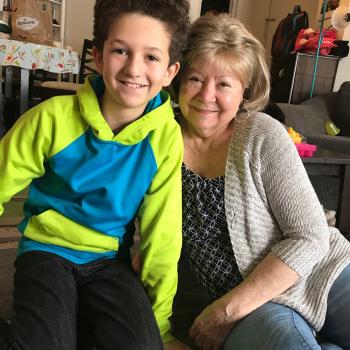 Almost two years ago, I came out of the closet with depression. I’m still a little shocked that my confessional post about my huge battle with depression remains in the top 10 of my 500-ish posts. The topic of depression or ‘how to treat depression’ is a key search phrase in which hords of pretty depressed folks wind up here.
Almost two years ago, I came out of the closet with depression. I’m still a little shocked that my confessional post about my huge battle with depression remains in the top 10 of my 500-ish posts. The topic of depression or ‘how to treat depression’ is a key search phrase in which hords of pretty depressed folks wind up here.
That’s why I was pretty pumped to allow a guest post today about a fundraiser for Help for Depression and from To Write Love on Her Arms a non-profit movement dedicated to presenting hope and finding help for people struggling with depression, addiction, self-injury and suicide. TWLOHA exists to encourage, inform, inspire, and also to invest directly into treatment and recovery. (Check out their website, it’s pretty flipping sweet)! =)
As someone who has dealt with pretty severe depression, a number of addictions, self-harm & a few too-close temptations to commit suicide I’m all about advancing causes like this.
Depression really does suck. Hard. When one of my best buds told me her battle with depression was FAR WORSE than her battle with breast cancer, I knew I wasn’t just making it up.
Without further ado…
There are many methods available to relieve depression, and almost as many explanations about why people become depressed. The fact remains that thousands of people are suffering from depression and not receiving any help. To address this, October has been designated Depression Awareness Month.
As a licensed clinical counselor, I have witnessed the therapeutic effects that understanding and treatment creates. A public with raised awareness about this mood disorder is likely to be more compassionate toward those who experience symptoms. People with symptoms will know about resources available for treatment and use them, without fear of other’s judgements.
Why Depression Awareness is Needed
Depression awareness can positively impact disturbing statistics, like those measuring suicide among young adults. In the U.S., the fourth leading cause of death in people ages 18 – 25 is suicide. For some minorities in that age group, suicide is the second leading cause of death. Depression is treatable, which makes suffering the symptoms, and high rates of suicide, unnecessary tragedies.
An estimated 92% of African American males who have depressive symptoms, do not seek treatment. About 72% of Asian Americans with mental illness manage symptoms without help. Children of newly arrived immigrants are at risk for depression or other diagnosis, as adjusting to a new way of life is laced with difficulty. Within every ethnic group in the U.S., and around the world, the numbers are all too similar.
If You Can Click A Mouse, You Can Help
Two organizations, Help for Depression and To Write Love on Her Arms (TWLOHA), are working together to raise $15,000 for depression awareness. It will take less than a minute of your time to help them reach that goal. Just click the “like” button on Help for Depression’s Facebook page between October 1st through the 15th. Each new click on the “like” button generates $1 toward the goal of $15,000.
The only cost to you is a fraction of your time. With your assistance, Help for Depression and TWLOHA will have funds to educate the public about this illness. With more awareness, depression suffers can ask for help without the added burden of shame. Please go to the Help for Depression’s Facebook page to make a cost-free contribution.
More Reasons to Help
The elderly also need the public’s awareness. Not only is depression too common among those over 65, the symptoms of depression are easily mistaken as signs of “old age.” Health care professionals, and children with elderly parents, need to know this. A research study revealed 10% of U.S. veterans experienced depressive symptoms within a one year time period, and unreported depression in today’s stressful workplace is a growing concern.
Your help will make the symptoms of depression, and helpful resources, known to those who are diagnosed, and to those who are unaware. This is especially important now because many community mental health centers in the U.S. have lost (are losing) the funding required to help those with low incomes. Your mouse click on the link above will make a difference and is very much appreciated.
-Tracy Rose











